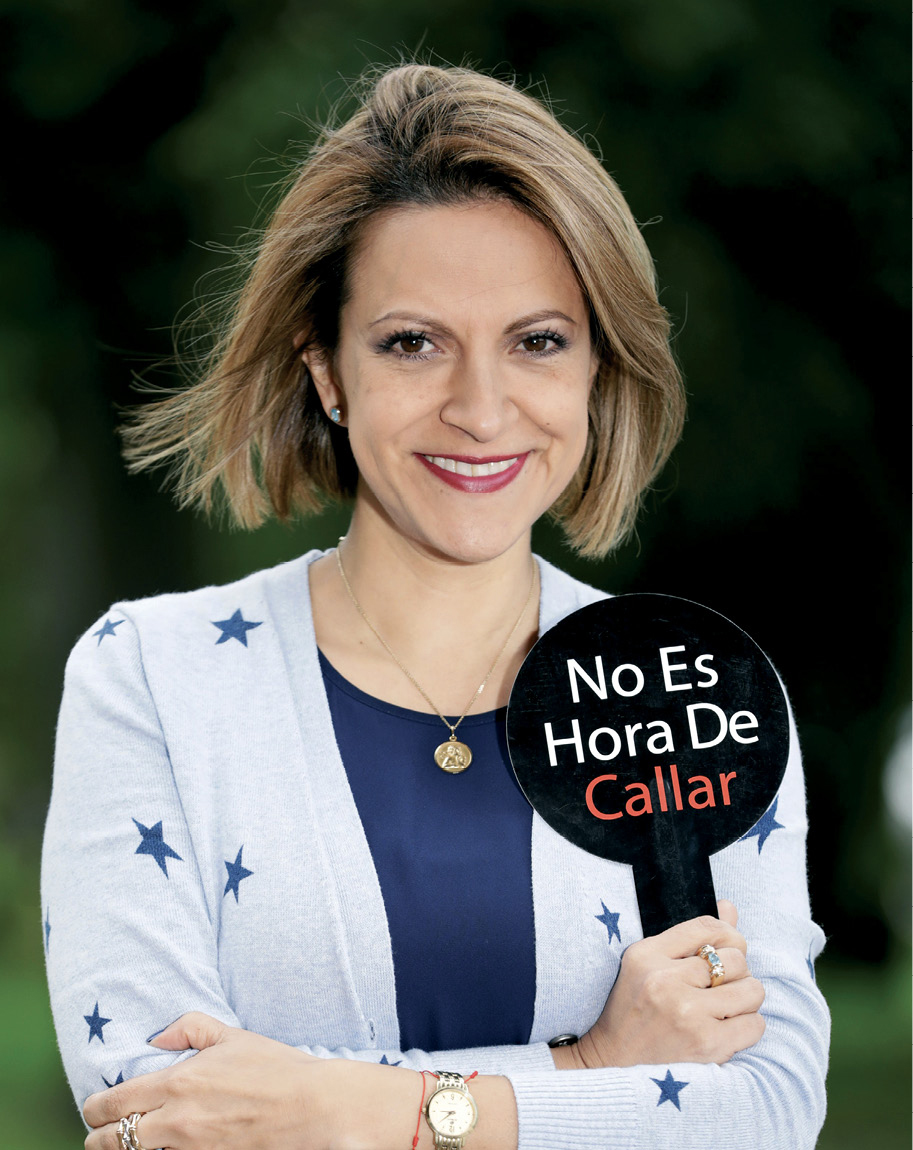Jineth Bedoya Lima

Hillary
“On the first day that Jineth Bedoya Lima arrived for work at the offices of Colombia National Radio in Bogotá,” begins an article in the Guardian, “she was assigned to cover a story that would become her life. That day, in December 1996, her task was to report on what is probably the most dangerous prison in the world, La Modelo, infamous as a focal point for trafficking in drugs and arms between the forces of state, cartels, and rival militias.”
Born in 1974, Jineth grew up in the aftermath of Colombia’s long civil war, with Pablo Escobar and his cartel on the rise. After Escobar was killed, the empire he had built broke into factions, and the country descended into violent chaos. At La Modelo, Jineth saw “complicity by the army in many of the massacres carried out by the paramilitaries, and ways in which the military were arming the paramilitaries,” she told the Guardian. “Some members of the military were even selling weapons to FARC,” a violent rebel group. Her commitment to truth-telling and shining a light on the corruption within the government made powerful people uncomfortable. “I can see now,” she said, “that as well as being furious at what I was writing, they were offended by the fact that I was a woman—young, pretty, petite, but sticking my nose into their affairs.” In 1999, she was the victim of an attempted assassination. Still, she continued her investigative reporting.
“How did I overcome my fear, when it looked like my life was over? How did I continue as a woman and a journalist when faced with this black wall? I needed to know what happened. When I leave this world, I need to have known what happened to Jineth Bedoya, to my colleagues and so many other women.”
—JINETH BEDOYA LIMA
In May 2000, she landed an interview with a paramilitary leader who was imprisoned in La Modelo. When she arrived at the prison, she was kidnapped at gunpoint as a “message to the press in Colombia.” She was raped, tortured, and left on the side of the road. “My body was destroyed. I was covered in wounds. They had cut my hair as well,” she said. “I knew that the only way to continue living was to continue being a journalist.”
Within weeks, she had returned to work. She started reaching out to other women who had been kidnapped and sexually assaulted—not for an article, but for herself. “There’s a distinction between what happened to you as a journalist and what happened to you as a woman,” she has said. In 2003, she traveled to the town of Puerto Alvira, which had been taken over by the FARC. She was kidnapped and again held hostage. After her release, despite the constant threats to her safety, she kept working to investigate violence, conflict, drug trafficking, organized crime, and sexual violence.
Six years later, Jineth launched a public advocacy campaign to raise awareness about the violence against women within the Colombian conflict. She called the campaign No Es Hora De Callar (Now Is Not the Time to Be Silent). In 2012, when I was secretary of state, First Lady Michelle Obama and I honored Jineth with the International Women of Courage Award. In 2017, she received the Hillary Clinton Award at Georgetown, along with several others who were doing essential work in bringing women to the table during the peace process in Colombia. I celebrated her that day as “a journalist who continued her pursuit of the truth and her advocacy for victims of sexual violence in the face of her own horrors.”
Jineth still works as a journalist. She lives with her mother, under the protection of bodyguards. She receives near-constant threats of kidnapping and violence, wearing a bulletproof vest and traveling to work in an armored car. Despite everything, she refuses to be dissuaded. “The worst that can happen to me has already happened,” she has said. At a time when too many politicians and government officials around the world lash out at the press and punish individual journalists, I am in awe of her courage and her determination to tell the truth, no matter what.